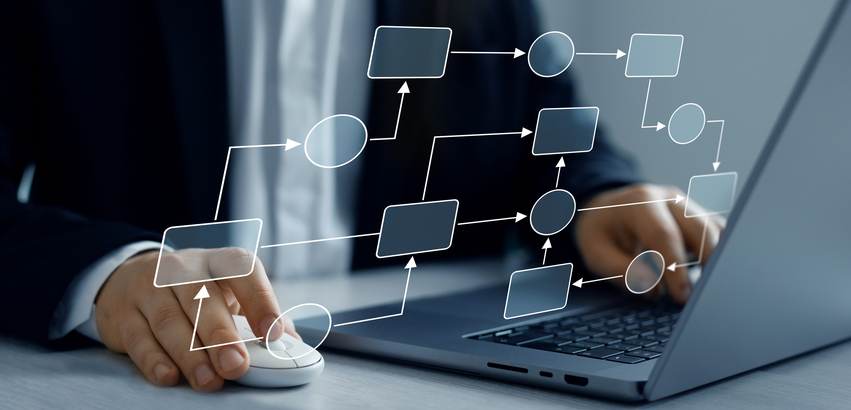What are the benefits of ERP for distributors? Implementing an ERP system specifically designed for distribution companies can drive ROI for your business. We know this because Ultra’s independent ERP consultant team is in the field helping to improve operational efficiencies of wholesale distribution companies and other organizations in the distribution sector.
Many of these companies are experiencing disruption due to the need to shrink timelines for order fulfillment.
Distributors feel the impact from customer-focused, high-volume retailers like Amazon and big-box organizations. This shifting competitive landscape places pressure on wholesalers and distributors to fulfill orders faster and more efficiently. This is an area that challenges technology and processes to be flexible and responsive to their requirements.
Other challenges are in the area of inventory management. Distributors, supply chain managers and retailers are scrambling for ways to improve the efficiency of moving inventory – a challenge compounded by an ever-increasing number of product lines (aka SKU proliferation).
But forward-looking companies are looking to technology more and more to address these challenges. The 2024 MHI Annual Industry Report found 55% of respondents “are leveraging digital technologies to make their supply chains more responsive and resilient, helping them adapt to changing market conditions, anticipate disruptions, and seize new opportunities.”

Top 10 Distribution KPIs
Where can you find new efficiencies, extra pennies and an additional tenth of a percentage point? The right metrics make it clear. But what are the most important KPIs?
Benefits of ERP for Distribution Companies: Successful Initiatives
When it comes to technology initiatives to address these challenges, successful projects look at more than implementing enterprise technology for distribution companies.
Ultra leads teams to drive business process improvement in their organizations not just by capitalizing on the latest technologies, but by using those technologies to streamline and standardize their core processes.
As a recent example, we teamed with a wholesale distributor in need of improved processes.
Business process mapping of the key processes unveiled inefficiencies and bottlenecks caused by stand-alone systems and manual spreadsheets. Once the team identified these gaps and established a desired future state, the enterprise integrated and automated its procure-to-pay and order-to-cash processes, which saved time, eliminated errors, and ultimately improved customer satisfaction.
In this case, replacing multiple systems with an ERP system delivered ROI. End-to-end integration of ERP software enabled the distributor to gain accurate, real-time insights based on a single version of the truth. The company now makes the right decisions for their business operations based on real-time data gathered across the entire organization.
Instead of focusing on the latest technologies, plan to use technologies to streamline and standardize core processes.
Ready to start your digital transformation journey?
Click the button below to request your free discovery call.

10 Benefits of ERP Software for Distributors
It all starts with real-time data visibility. When a distribution ERP system is integrated throughout the enterprise, the team gets a clear and complete picture of overall operations. This can shed light on KPIs across several business processes and help you streamline operations for added efficiency.
From the example above and other projects Ultra has led, here are ten benefits of leveraging enterprise resource planning software (ERP) for distribution companies:
1. Inventory management
Integrating the systems that run critical functions helps optimize inventory levels across multiple locations. Real-time inventory visibility facilitates the quick movement of goods, allowing you to avoid overstocks and stock-outs. Modern ERP systems also allow accurate forecasting to let you predict and plan for future demand.
2. Order Processing
ERP can play a big role in reducing manual data entry when it comes to order processing. An ERP solution can automate routine tasks, reducing the time spent on manual order tracking. Plus, you can increase customer satisfaction through real-time updates on order status, shipments and delivery times.
3. Supply Chain Management:
Integrated enterprise systems offer robust supply chain management capabilities that optimize advanced planning, merchandise importing, and distribution requirements planning (DRP) for centralized purchasing environments and multi-warehouse distribution channels. ERP solutions provide a centralized platform for supplier communication, allowing you to monitor supplier performance, lead times, and prepare for disruptions.
4. Sales and Customer Service:
ERP systems integrate CRM (customer relationship management) functionality, providing real-time visibility into sales data, customer preferences and purchasing patterns to improve customer interactions. Your distribution business can put these insights to use for improved customer service and a competitive edge.
5. Financial Management:
ERP software can help your business make informed decisions to reduce costs while providing accurate forecasts and financial reporting. Plus, it can automate business functions like invoicing, expense tracking and payroll, freeing up resource allocation for more strategic activities.

6. Performance Monitoring:
The right ERP system can lead to better customer service for distribution businesses by highlighting KPIs on core business processes including on-time delivery, order accuracy, and customer satisfaction. This data can help inform continuous improvement initiatives, and timely responses to any issues that arise.
7. Reporting:
Using real time data, your distribution business can generate reports from disparate areas such as inventory, finance and logistics on single platform within your ERP. The system can automatically generate standard reports, saving time and ensuring accuracy based on up to date information.
8. Efficiency:
The real time data within an ERP can help reduce manual efforts and minimize errors. For example, within the warehouse you can set automated reorder points, ensuring optimal stock levels. Plus, it can help streamline time consuming tasks like order picking, replenishment and cycle counts. For example, it can generate pick lists and optimize picking paths which cuts time from the fulfillment process and minimizes pick errors.
9. Risk Management:
By automating routine tasks, ERP systems help reduce operational risks by ensuring standard set practices and procedures are followed. ERP can also highlight potential supply chain disruptions including delays or quality issues.
10. Collaboration:
Business intelligence data gathered from multiple departments encourages improved collaboration. Teams can view the same information thereby coordinating efforts and reaching consensus on key decisions.
Considering the Benefits of ERP for Your Distribution Enterprise? Dig Deeper.
The distribution sector is facing a time of disruption, with rapid changes in consumer demand, delivery platforms and more. With hundreds of successful digital transformation projects with distributors like your company, Ultra Consultants has the experience to leverage the latest ERP technology, combined with our proven transformation methodology, to drive real results for you. Contact us to discover how the benefits of enterprise resource planning systems for distribution companies can be used to drive improved business performance for your organization.
Table of Contents
More ERP material...
Why Smart Factories Are No Longer Optional for Food Manufacturers
Discover why smart factories are essential in 2026 for food and beverage…
Top ERP Software Trends 2026: AI Capabilities to Watch
Learn why analyzing and improving processes upfront is critical to reducing risk,…
Why Do Business Process Analysis Before a New ERP System
Learn why analyzing and improving processes upfront is critical to reducing risk,…



